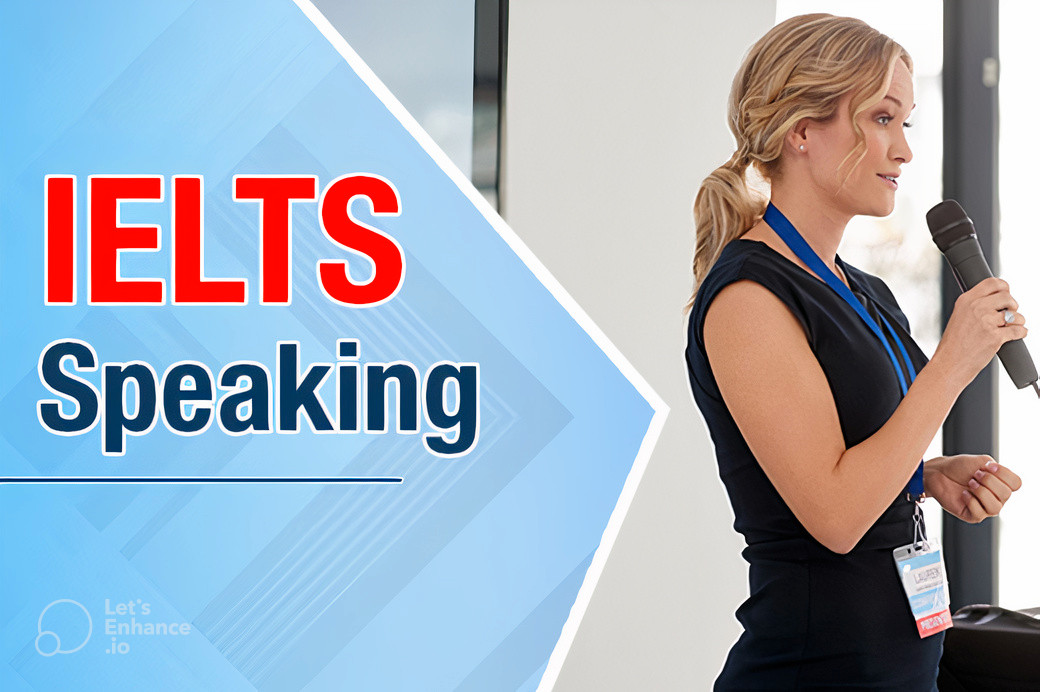Conquering the IELTS speaking test can feel overwhelming, especially with the pressure of talking to an examiner. But don't worry! This comprehensive guide will equip you with powerful strategies and actionable tips to conquer the IELTS speaking test and demonstrate your communication skills with confidence.
Understanding the Test Format:
The IELTS speaking test is a face-to-face conversation with an examiner, typically lasting 11-14 minutes. It's divided into three parts:
- Introduction and Interview: Introduce yourself and answer general questions about your life, hobbies, and work experience.
- Individual Long Turn: You'll be given a cue card with a topic and one minute to prepare a short talk.
- Two-Way Discussion: The examiner will engage you in a discussion related to the topic from the long turn.
Essential Strategies for IELTS Speaking Success:
- Boost Your Fluency: Practice speaking English regularly. Find a language exchange partner, join online conversation groups, or even talk to yourself in English!
- Expand Your Vocabulary: Devour interesting articles, watch English-language movies and TV shows, and actively learn new words. Aim for variety and context-appropriate language.
- Master Grammar Fundamentals: Solid grammar forms the foundation of clear communication. Brush up on verb tenses, sentence structures, and common grammatical errors.
- Practice Pronunciation: Work on clarity, not perfection! Focus on stress, intonation patterns, and natural-sounding pronunciation. Resources like online dictionaries with audio recordings can be helpful.
- Develop Active Listening Skills: Pay close attention to the examiner's questions and respond directly. Demonstrate your understanding by rephrasing questions and using transition words like "because" or "in other words."
Advanced Techniques from an IELTS Expert:
- Think Out Loud: While preparing for the long turn, verbalize your thought process. This helps the examiner understand your organization and allows you to refine your ideas before speaking.
- Use Linking Phrases: Employ transition words and phrases like "firstly," "in addition," or "consequently" to connect your ideas seamlessly and demonstrate a clear thought flow.
- Go Beyond Description: Don't just describe things, analyze, and evaluate them. Provide examples, express opinions, and engage the examiner in a dynamic conversation.
- Maintain a Positive Attitude: Smile, project confidence, and show genuine interest in the conversation. This makes you a more engaging speaker and creates a positive testing experience.
Boost Your Skills with IELTS Coaching:
While self-study is great, consider supplementing your efforts with an IELTS coach. They can be your secret weapon for conquering the speaking test! Here's what an IELTS coaching in Delhi can offer:
- Personalized Feedback: An experienced coach will listen to you speak and provide specific advice on improving your fluency, pronunciation, and overall delivery. They'll identify areas where you shine and areas that need extra work.
- Targeted Strategies: Learn test-taking strategies specifically designed for the IELTS speaking test. Your coach will help you manage your time effectively, structure your responses strategically, and handle unexpected questions with confidence.
- Practice Makes Perfect: Most coaching programs offer mock tests that simulate the actual exam environment. This allows you to experience the pressure of the test in a controlled setting and receive valuable feedback from your coach.
- Course Materials: Many coaching programs come with access to a wealth of resources, including practice tests, sample speaking questions, vocabulary-building exercises, and pronunciation guides.
IELTS coaching can be a valuable investment that helps you feel more prepared, confident, and ultimately, score higher on the speaking test!
Embrace the Challenge and Conquer Your IELTS Speaking Goals!
With dedication, practice, and these powerful IELTS Speaking tips and tricks, you can transform the IELTS speaking test from a hurdle into an opportunity to showcase your English fluency and communication skills. Remember, the key is to be prepared, confident, and demonstrate your ability to engage in a meaningful conversation. So, take a deep breath, embrace the challenge, and take the first step towards achieving your academic and career goals abroad!
FAQ’s
What are the biggest mistakes people make in the speaking test?
Many students struggle with fluency and speaking for extended periods. Others might lack vocabulary or make grammar errors. Being nervous can also lead to forgetting prepared ideas.
How can I become more fluent in English?
Immerse yourself in English! Find a language exchange partner, join online conversation groups, or watch English-language shows and movies. Practice speaking every day, even if it's just talking to yourself in English.
What kind of vocabulary should I learn?
Focus on vocabulary relevant to your interests and potential topics on the test. Learn synonyms and descriptive words to add variety to your speech.
Is it important to have a perfect accent?
Don't worry about sounding like a native speaker! Focus on clear pronunciation and avoid strong accents that might hinder understanding.
Should I consider getting an IELTS speaking coach?
An IELTS coach can provide personalized feedback, teach test-taking strategies, and offer mock tests to simulate the real exam environment. They can be a valuable resource to boost your confidence and score.





Comments